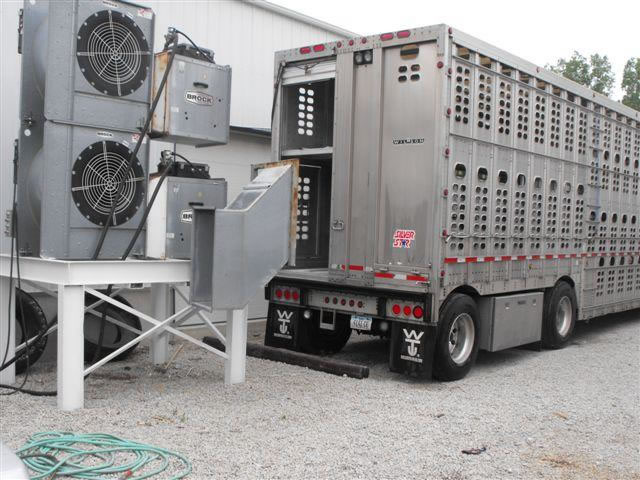Trucks must be washed before re-entering Canada
By Diego Flammini
Assistant Editor, North American Content
Farms.com
Pork producers in western Canada are concerned their farms could become infected with diseases after newly implemented CFIA regulations call for transport trailers to be washed at American facilities before re-entering Canada.
In an April 29 media release, Manitoba Pork said it was “extremely disappointed” with the regulations, which came into effect on May 2.
The issue stems from the fact that many U.S. truck wash facilities use recycled water to wash the trailers, whereas facilities in Manitoba use high-temperature air and fresh water to kill PED and other viruses.

“This is a crisis moment for the Canadian swine industry. Manitoba Pork is advising all swine producers in Western Canada to insist that any trailer returning from the U.S. be properly washed and disinfected in a certified Canadian facility. Producers should assume that trailers washed only at U.S. facilities are almost certainly contaminated with the PED virus.”
In an email, Ontario Pork said it met with transporters and addressed concerns that wash stations in the U.S. may use recycled fresh water.
“These trucks need to wash again at an Ontario truck wash. This adds additional costs to farmers without adding any additional value,” the organization said.
Angie Hurst, co-owner of Luckhart Transport Ltd., which transports livestock around North America told The Globe and Mail the company has an obligation to its customers because sending a contaminated trailer to a farm could put livelihoods at risk.
“And if they don’t have their business then I don’t have their business.”